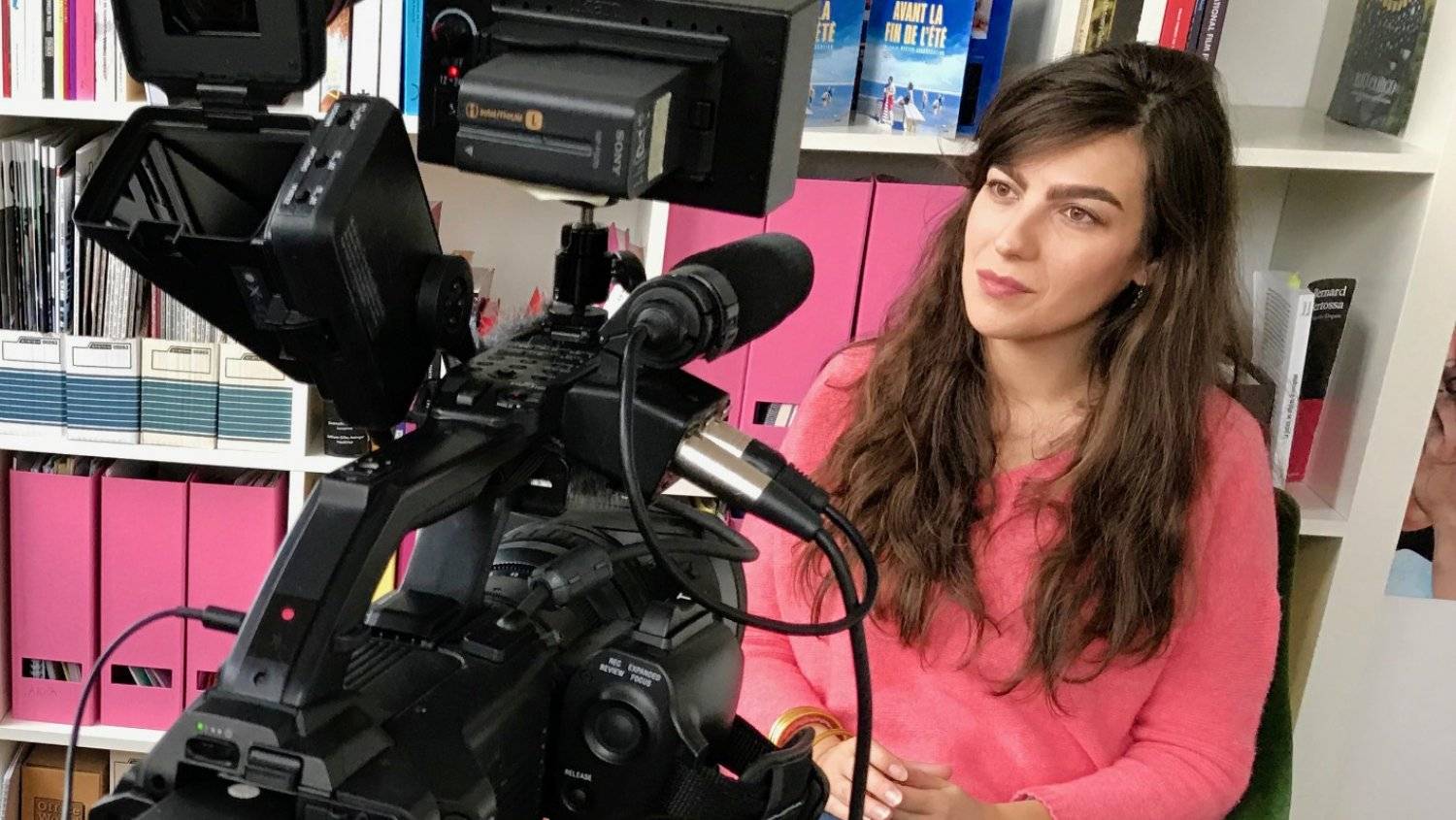A beloved friend is leaving the country and he’s never coming back, a decision his two Iranian expat friends decide to fully thwart, best they can. Instead of coming up with some kind of harebrained scheme to stop him, they devote two weeks of camping, travel, and fraternity in the French countryside. Part of the simple beauty of Maryam Goormaghtigh’s documentary Before Summer Ends (“Avant la fin de l’été”) is the straightforward innocence of its plot, and the refreshingly genuine expression of friendship among Arash, Hossein, and Ashkan.
Although a legitimate documentary, Goormaghtigh’s structure is somewhat reminiscent of an American film of the “mumblecore” stripe, but it’s the subjects who provide the film its real momentum and keep things from feeling aimless, each of them engrossing in their own way. The connection they express with their culture is profound—Hossein seems never far from his weathered copy of Hafez, even using it to divine the best way to approach a girl they meet. It’s tough to identify an exact “leader” among the three, though Hossein might fit this moniker best; charismatic, poet-souled, ruggedly handsome and lion-maned. But Arash’s intended departure highlights his own presence as a kind of lynchpin, supportive of his friends while privately toiling with some nonspecific struggle or sadness. Distinctly overweight and mostly jocular, it’s yet not rare for him to impart a sober, penetrative aside, as when he says, “When you don’t manage to forge ties with the people around you, that solitude can make you unhappy. I have no one to bond with here. French people don’t have any reason to be interested in me. Sometimes we have a beer together. We greet each other at school or work, but they have no reason to actually be friends with me.”

The dialogue is primarily spoken in Farsi, despite the backdrop. As a key part of their identity, Farsi unites the friends, perhaps even isolating them from their adopted countrymen. Sure, it’s how they can comment on the people around them in flagrant detail, but it’s also the reason Goormaghtigh first met the trio in a bar in Paris. Additionally, they evince a distinct physical intimacy, constantly embracing, rough-housing or belly-slapping, including one unexpectedly sweet scene where Arash completely falls asleep on the diminutive Ashkan, playfully crushing him under his significant weight.
The flow of the narrative is breezy and light, but punctuated with in-depth, candid conversations about Iran. Hossein becomes stressed at one point because Iranian government agents are threatening to take his family’s house, and it is thus revealed that he defected from the country to avoid military service. Despite this, he speaks of Iran favorably as an integral part of who he is: “When I’m there, I’m happier. When I wake up there, I feel better. But I prefer the person I am here, to the one I am over there.” This dichotomy—one that is frequently related by Iranian expats and exiles—pairs with Arash’s own conflicts, though the latter may be homesick such that he’s satisfied exchanging one country’s values and freedoms (he praises the ability to purchase alcohol in the supermarket) for that of his birth.
Goormaghtigh frequently juxtaposes dashboard footage of the French countryside with comparable footage of Iran, driving past. Is she demonstrating the similarities between the two nations, or their differences? Is this what the trio sees in their heads, instead of the alps in the distance? Perhaps she is providing an example of the nation they bring with them on the road, or demonstrating what Arash will see outside of his window once he is back home. It’s a strange stylistic choice and is never formally acknowledged in the film, but it works to establish the three as a kind of “mobile nation.”

On their extended, seemingly routeless camping trip they swim, prepare food and laundry, recite poetry and sing, philosophize, but there is one thing abundantly clear all along: the two don’t want Arash to leave. Arash’s love for his friends seems powerfully reflected in kind, which only frustrates them all further, this fact that their friendship isn’t enough.
In certain respects, Before Summer Ends risks being lighter than air, a casual stroll through some countryside with yammering friends. And yet, there is an accessible, homespun pleasure in seeing three adult men express their fraternal love so freely, articulately, and shamelessly. There are no jokes about “man-crushes.” There are no sarcastic checks about sabotaged masculinity. The compellingly believable relationship at the core of the story injects it with a deeply sad irony, as it chronicles the end of a years-long friendship; it is essentially expected, if not concretely believed, that they will never see Arash again if he leaves.
Although there is a narrative development involving two charismatic gals the men stumble upon (don’t expect a resultant triangle-like conflict to arise, as Hossein is happily married), an appreciation of Before Summer Ends does require something specific of the viewer, to give themselves over to a poetic but unambiguous piece of cinéma vérité. Very little about the film feels contrived, despite the cinematic framing of some perfectly realized scenes.
You can watch Before Summer Ends at MyFrenchFilmFestival, where it is available for individual purchase or as part of the larger festival collection.






